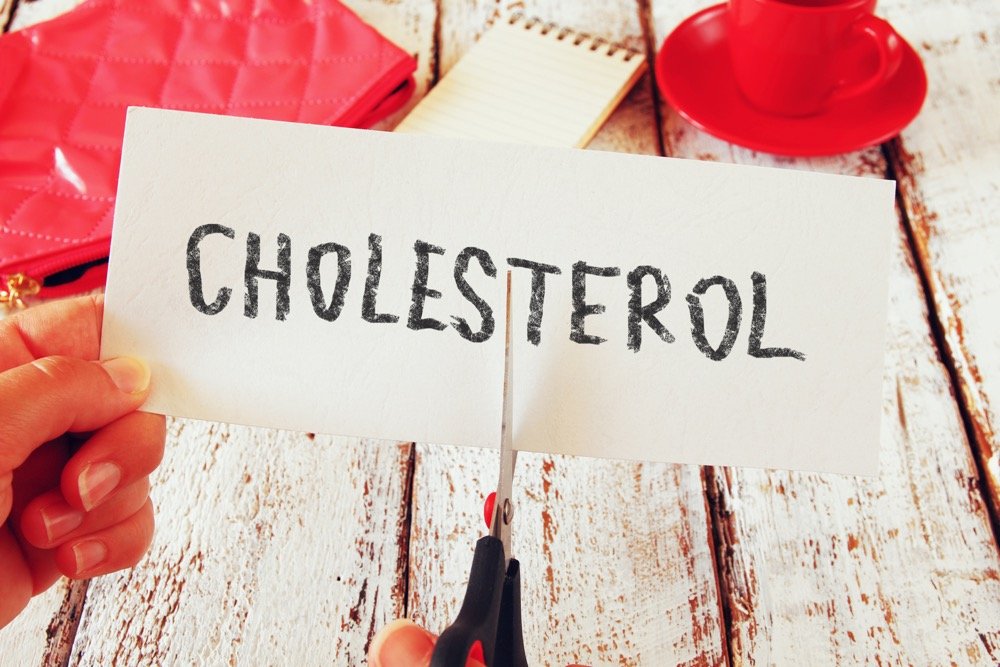Your body needs cholesterol to synthesize bile acid, hormones, and vitamin D. Cholesterol only contributes to damage your health when it is in excess quantity. Extra cholesterol is a leading cause of developing cardiovascular diseases such as hypertension.
It is true that not only unhealthy food choice but your age also increases your cholesterol levels. Women above 45 or after menopause and men after crossing 50 years often develop this debilitating health condition.
You should know that not all cholesterol deteriorate your health. But it is the low-density lipoproteins (LDL) that are daunting as they stick to the wall of your arteries. On the other hand, high-density lipoproteins (HDL) are safe for your health and they function to eliminate excess cholesterol in your body.
With the help of dietary and lifestyle changes, you can overcome the issue in a short time span.
13 Natural Ways to Lower Your Cholesterol Levels

1. Limit Consumption of Trans Fats
You may find packaged foods convenient in various ways. Packaged foods contain hydrogenated fats or Trans fats that increase the lifespan of the food. Moreover, the vegetable oils used in the preparation are often artificially solidified which cause an imbalance in the cholesterol levels. The serious problem occurs when the components of packaged food reduce the levels of HDL and affect your cardiovascular health adversely.
2. Opt for Plant Sterols and Stanols
Sterols and stanols are cholesterol-like substances that are widely found in plants. Not to mention, this variety of cholesterol promote the health of your heart. It happens due to the similarity of their structure. Sterols and stanols are absorbed in your intestine like the real cholesterol. These substances impede bile absorption as well. Therefore, your body needs extra cholesterol to produce the required amount of bile lowering the cholesterol levels in your blood. In addition, stanols and sterols do not affect the HDL and help lower LDL levels in no time.
3. Reduce Sugar Intake
Nutritionists recommend that fatty foods are not only responsible to boost LDL levels and heart disorders. In most cases, high intake of sugar increases cholesterol in your body. A study revealed that refined sugar contains minimum HDL levels and maximum triglycerides. Triglycerides are a type of fat in your body which, when combined with a low HDL level, contribute to cardiac arrest. If you are considering low-calories sweeteners in this context, you should know that these are processed variety of sugar which causes severe damage.
4. Go For Unsaturated Fats
Fats like polyunsaturated and monounsaturated help alleviate excess cholesterol in your blood. So, you can consume food sources packed with omega-3s. This is also a great way to reduce arteries inflammation and blood clotting which ultimately lower the symptoms associated with heart diseases. Vegetarians can obtain omega-3s from option like avocados and nuts to control high cholesterol levels naturally.
5. Incorporate Soluble Fiber
One of the effective ways to keep cholesterol on track is to opt for soluble fibers. These fibers when resourced from plants, provides almost zero calories and cholesterol. When you consume soluble fiber, it turns into a gel-like substance and covers intestinal walls.
This way, your intestinal walls prevent bloodstream from the absorption of cholesterol and fat. You should consume adequate servings of oatmeal, barley, apples, berries, and bananas to reap soluble fibers.
6. Try Apple Cider Vinegar
You can also try a home remedy to neutralize LDL levels. Simply mix 1 – 2 tablespoons of apple cider vinegar with one cup of water and drink this concoction before meals. You should also sprinkle some amount of the apple vinegar on your salads to get maximum benefits.
It is worth noting that fermenting apple cider vinegar increases the number of antioxidants. The compound helps reduce LDL and triglycerides without hurting your health and increases HDLs.
However, a high level of cholesterol is a serious health issue which needs proper treatment. Thus, schedule an appointment and opt for medical help.
7. Avoid High-Cholesterol Foods
Nothing seems as tempting as freshly fried eggs in the morning. However, this delicacy increases dietary cholesterol rapidly.
Foods sources like eggs, lobsters, whole milk, shrimp, red meat, organ meat, and dairy products contain high amounts of saturated fats along with cholesterol.
Regular consumption of these foods boosts LDLs and HDLs alike. If you are a sufferer of high LDL, you need to limit the intake of cholesterol-filled foods to balance cholesterol levels.
8. Try Fish Oil
Supplements like fish oil are enriched with omega-3 fatty acids. Nutritionists state that consuming four grams of fish oil on a daily basis can lower a significant amount of fat in your blood. If you increase the intake up to six grams, it boosts HDL levels.
9. Limit Alcohol Intake
Alcoholic beverages contain ethanol – a compound that increases HDL lowering the risks associated with heart disease. However, excess consumption of alcohol contributes to high LDL levels. Binge drinking alcoholic drinks damage your health in numerous ways. You need to opt for the moderate approach in this context. So, avoid consuming more than 24 grams of alcohol.
10. Incorporate Exercise in your Routine
Exercise can become an ultimate solution for high cholesterol levels. It offers a plenty of health benefits including a healthy heart. Fitness experts revealed that physical activities that take heart rate up to 85% are best to increase HDL. You can also try a brisk walk and jog to get the desired outcome in a short time span. Types of exercises like aerobics do not only balance cholesterol but maintain hearts and increase lifespan as well.
11. Quit Smoking
Smoking is a gateway to various chronic diseases. Smoking also contributes to several cardiovascular disorders. It occurs when immune cells of smokers become unable to transport cholesterol to the liver. This damage to immune cells is occurred due to tobacco and tar. The malfunctioning of immune cells is also connected to the clogged arteries.
12. Avoid Stress
Health experts revealed that stress promotes cholesterol production in your liver to synthesize cortisol – a stress hormone. You should adopt interesting hobbies to get rid of stressful conditions.
13. Manage Weight
An obese individual is vulnerable to high cholesterol levels. Maintaining healthy weight is possible via watching what you consume. Replace saturated fats with polyunsaturated and monounsaturated fats. This way, you can control cholesterol levels and body weight at the same time.
Bottom Line
Natural ways are effective and help balance out cholesterol levels. However, concerning the severity of this health condition, you should visit your doctor to get the right treatment.

